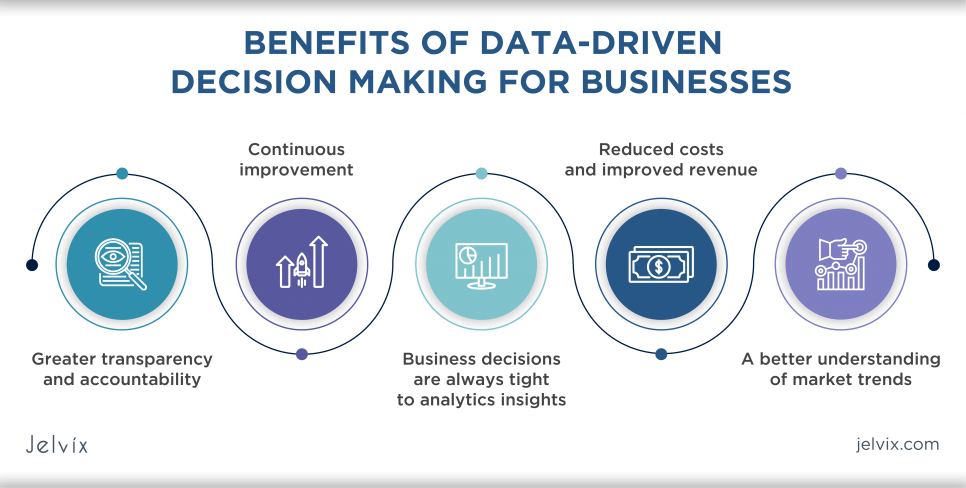In the rapidly evolving digital era, data has become the lifeblood of modern businesses, driving decision-making, fueling innovation, and enabling organizations to stay ahead in the competitive landscape. However, every business struggles with common data management challenges that can hinder growth, efficiency, and success, from the smallest startups to the largest enterprises.
Businesses of all sizes and industries must confront these challenges head-on and embrace data management solutions to unlock their true potential. This blog will explore every business’s five common data management challenges and offer insights into addressing them effectively.
Importance of effective data management in the digital age
The explosive growth of digital technologies, the internet, and connected devices has generated unprecedented data. Effectively managing data is an indispensable aspect of modern business operations. Embracing robust data management practices will lead to better decision-making, enhance customer experiences, and drive overall business success in today’s data-centric world.

Let’s consider a chain of retail stores with multiple locations. With data pouring in from various customer touchpoints, uncovering underlying trends can be challenging, leading to missed opportunities and potential revenue losses. However, the store chain can easily track sales statistics, inventory levels, and customer purchasing habits with the right data management technology. Armed with these valuable insights, the company can adjust its inventory and marketing strategy to align with customer expectations, minimizing stockouts and ensuring customer satisfaction.
Top 5 challenges of poor data management
Reduced productivity
Inadequate data management leads to manual data cleaning tasks, consuming valuable employee time and effort. Searching for accurate information, resolving data discrepancies, and correcting errors become time-consuming, hindering productivity and impeding strategic initiatives.
Additionally, data silos resulting from inadequate integration and centralization deprive employees of a comprehensive view of the organization’s data, leading to ill-informed decisions. Organizations must start implementing data management solutions to overcome these challenges and gain a competitive edge in the market.
Inaccurate decision making
Poorly managed data, riddled with errors, can lead decision-makers astray, resulting in flawed strategic choices, inefficient resource allocation, and missed growth opportunities. Misinterpreting market trends, customer preferences, and competitor actions can lead to ineffective business strategies and hamper potential growth prospects.

For instance, imagine a retail company expanding its operations to new regions based on market research and customer demographics. Unfortunately, an accidental merge of customer data from two sources without proper validation led to inaccurate customer profiles and failed business strategies. Robust data management could have identified customer demands, leading to better business outcomes.
Lack of data trustworthiness
Poor data management undermines stakeholder trust in data accuracy and reliability. Inaccurate data can frustrate customers who receive personalized offers based on incorrect information. Potential partners and investors may hesitate to collaborate or invest due to doubts about the provided data, limiting growth opportunities. Internally, decision-makers may face delays and question report validity due to unreliable data.
Addressing this challenge requires organizations to prioritize data quality and implement data governance, establishing robust validation processes to rebuild stakeholder trust. Ensuring data integrity and reliability unlocks the full potential of data assets as a valuable resource for growth and competitiveness.
Increased Security Risks
Poor data management increases security threats by exposing data to unauthorized access, breaches, and tampering. Lack of data integrity monitoring allows for unauthorized tampering, compromising data accuracy.
Organizations must prioritize robust data management practices to mitigate data security risks, including strong access controls, encryption, regular data audits, and employee training on best practices. It will help businesses to safeguard sensitive information throughout its lifecycle, from collection to disposal, to mitigate risks and ensure stakeholder trust.
Compliance and legal issues
Inadequate data management can lead to non-compliance with data protection regulations and industry standards. This exposes organizations to legal risks, fines, and reputational damage, particularly concerning privacy regulations like GDPR, CCPA, and HIPAA.
Mitigating compliance and legal risks requires organizations to prioritize data governance and adopt robust data management practices. Regular audits and assessments identify areas of non-compliance, enabling proactive measures to address vulnerabilities. Fostering a data compliance culture and training employees on data handling and privacy regulations facilitates responsible data management, reducing the risk of legal issues and preserving the organization’s reputation and trustworthiness.
Best data management practices
Effective data management ensures data accuracy, integrity, security, and usability. Embracing best practices empowers businesses to make better decisions, improve customer experiences, and thrive in today’s data-centric world. Here is a list of the best data management practices every company should employ:
- Employ data cleansing, validation, and enrichment processes to ensure the maintenance of high-quality data.
- Implement robust data integration methods to consolidate data from diverse sources, enabling a unified view of the business and facilitating better decision-making.
- Conduct regular data audits to evaluate data quality, security, and compliance, and continuously utilize the audit findings to enhance data management processes.
- Prioritize data security to safeguard sensitive information from unauthorized access and employ security mechanisms to avoid security threats.
- Maintain comprehensive documentation for all data sources, definitions, and transformations. This helps to enhance understanding and facilitate data traceability.
Final thoughts
Effectively managing data is an indispensable aspect of modern business operations. Embracing robust data management practices will lead to better decision-making, enhance customer experiences, and drive overall business success in today’s data-centric world.
At Xtract.io, we offer a robust data management solution tailored to your business needs. Our data experts will work closely with your organization to ensure data accuracy, integrity, and security, empowering you to make data-driven decisions and achieve your business objectives. Connect with us today and kickstart your data management journey.







